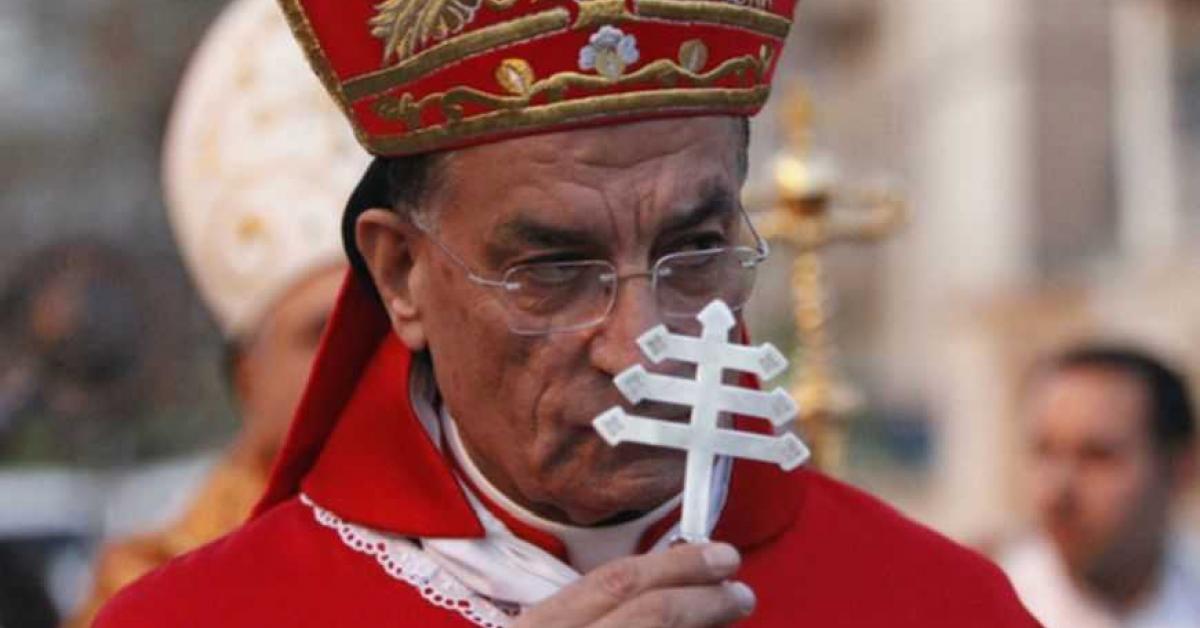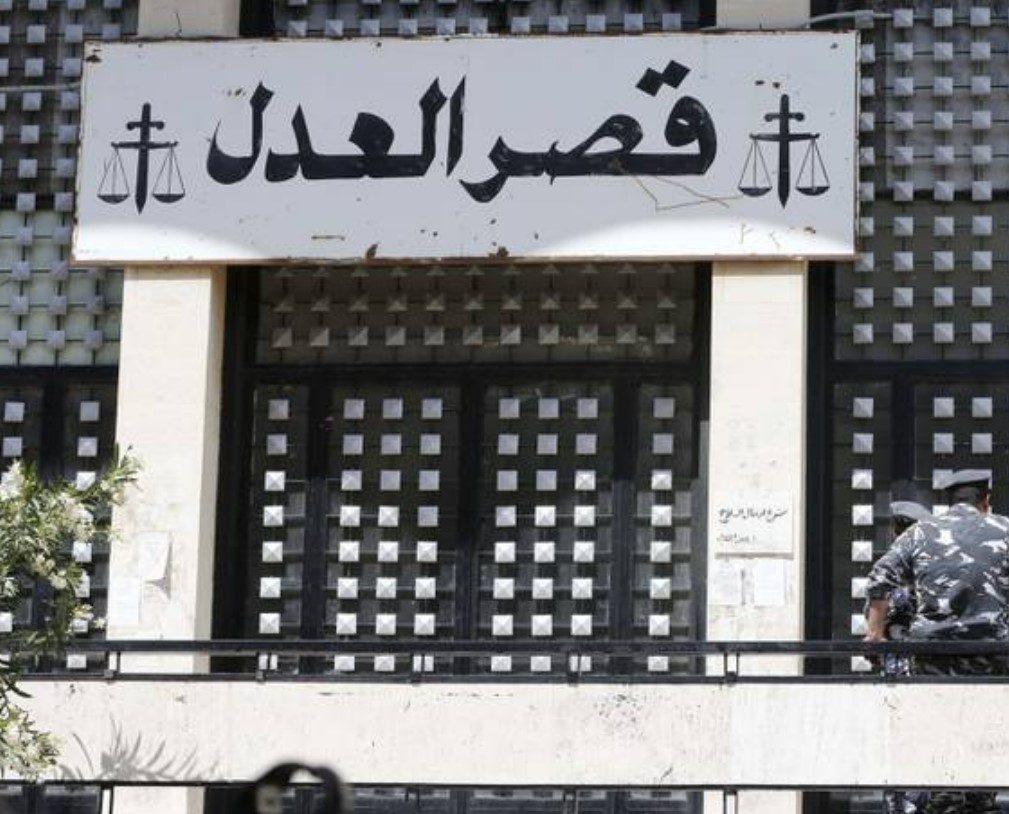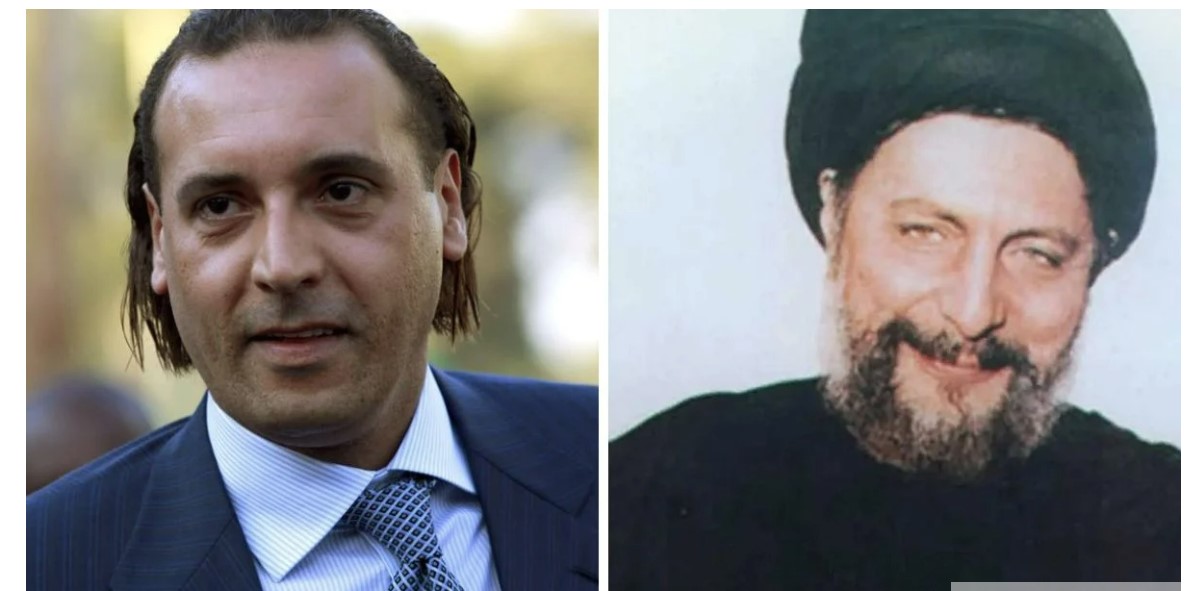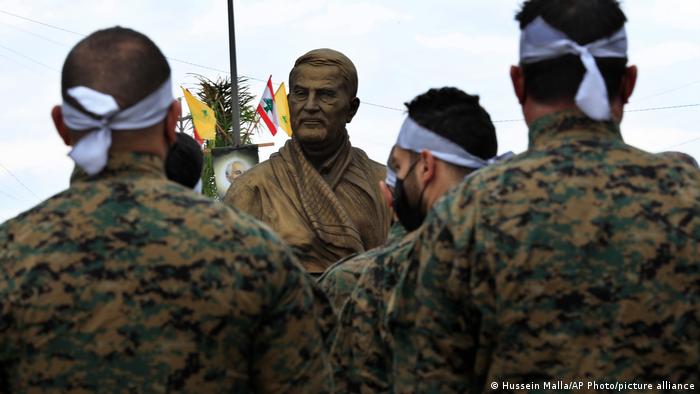Al Arabiya — A video showing a worker at a daycare center in Lebanon hitting a toddler and an infant drew anger from Lebanese citizens calling on the state to take action against both the worker and the center. The disturbing video, which was widely circulated on social media platforms on Monday, showed the worker […]

Story by Desire Athow techradar — Pixabay SEMRush, together with Ahrefs and Moz, is one of the most recognized names in the world of SEO (Search Engine Optimization) and SEM (Search Engine Marketing) with its eponymous SEO tool. I interviewed its president, Eugene Levine, to find out what his thoughts are about the impact of AI on the world of search, how disruptive generative artificial intelligence (GAI) could be for an industry faced with its biggest challenge since Google launched almost 25 years ago. He talks about how he thinks Search will evolve into a multi-dimensional experience and why GAI-based search engines may be the next big thing.
1. Let’s start with an easy one. What is your personal view about Generative AI as a concept?
I think this is a new technology that many people have been waiting for. For me, in terms of long term impact, this is going to be on par with personal computers, internet and smartphones. I see a lot of similarities between Generative AI and great disruptive technologies of the past. It enables people to do things they couldn’t do before. Personal computers have democratized many areas of the economy. For example, more people could pursue software engineering that previously was an option only for those who had access to very expensive mainframes. Generative AI enables people to do creative tasks even if they lack certain technical skills. You don’t have to be a professional painter to create great concept art using Midjourney, and you don’t need to be a professional copywriter to write great blog posts using our tools. It boosts productivity. Smartphones enabled people to be connected and improved efficiency of business communication. Generative AI can act as a co-pilot to deal with mundane tasks. For human resources professionals, it can write job descriptions and interview questions. For software developers, it can write unit tests and comments. That will free up a lot of time that can be used on more productive tasks. It can disrupt some industries. Computers and the internet eventually displaced bank tellers. But while doing that, those technologies created more jobs. With Generative AI I can see a lot of disruption across the customer support sector. But there will be a lot of new jobs for people to train and fine tune AI.
2. What will SEMrush (and its competitors) do to track what’s going on in an environment where traditional SERP will disappear?

by Reem Abulleil author thenationalnews.com — Chris Dirany is part of the Lebanon team at the Asian Surfing Championships. Lebanese
A graffiti artist, a financial analyst, an investment banker, and a surfing/skateboarding/snowboarding instructor and business owner are currently in the Maldives getting ready to represent Lebanon in the Asian Surfing Championships between July 8 and 17. Together, Alfred Badr, Lena Abdelnour, Lena Allam, and Chris Dirany have formed Lebanon’s first-ever homegrown surfing team and have flown to the Maldives with the clear mission of putting their country on the world surf map. They each got introduced to the sport in their own unique way, and never knew there were surfable waves in Lebanon before they actually hopped on a board and tried for themselves. Lena Allam, a 29-year-old investment banker who has been living in Dubai for the past two years, grew up in Deir El Qamar, south-east of Beirut, and fell in love with surfing when she was a child, watching a Disney movie. “It was thanks to Lilo & Stitch, the Disney cartoon. In Lebanon we don’t have surfers, so I never saw a surfer on the beaches in Lebanon. So I think the idea came to me when I was watching Lilo & Stitch and I was always replaying the same part of the movie where they surf this big wave and I used to get like super excited,” Allam told The National.
Allam’s fascination with surfing grew from there. She would write school projects on Hawaii because of its vibrant surf culture and it was always a dream to get on a surfboard and catch a wave. That dream finally came true when she was 18 years old. An interview with Lena Allam from Lebanon’s surfing teamAn interview with Lena Allam from Lebanon’s surfing team She initially tried windsurfing but didn’t enjoy it before she eventually got in touch with a surfboard shaper and began taking lessons in Batroun in Lebanon. The first surfboard Allam bought was a decorative one hung up in a Quiksilver store that wasn’t intended for sale.

by Maya Gebeily; editing by Tom Perry and Mark Heinrich (Reuters) – Deputy premier Saade Chami said on Friday deputy governors of Lebanon’s central bank should run it if no governor is appointed by the end of the month, calling their threat to collectively resign “dangerous”. Longtime governor Riad Salameh’s term expires at the end of July and one of the deputy governors told Reuters on Thursday they were considering quitting together if no successor is named, raising the possibility of the central bank being left leaderless amid a deep financial crisis. Lebanon’s breakdown in governance and political tensions have hamstrung efforts to find a successor to Salameh, whose 30-year tenure has been stained by charges at home and abroad of embezzlement of public funds in Lebanon. He denies the charges.
In a statement to Reuters, Chami said the deputy governors should “assume their responsibility in case this appointment is not possible…The threat of resignation implied by the statement is quite dangerous at this critical juncture.” Chami said Lebanon’s code of money and credit “very clearly” instructs the first deputy governor to assume the responsibility of the governor in case this position becomes vacant. “One cannot pick and choose from the code of money and credit,” he told Reuters. The central bank leadership is appointed according to the sectarian power-sharing system that governs other top posts. The governor must be a Maronite Catholic, while the four deputies – a Shi’ite Muslim, a Sunni Muslim, a Druze and an Armenian Catholic – must have the approval of the political chiefs representing their respective sects. “The most likely scenario prompting such a statement is a push to extend Salameh’s term,” said Nabil Boumonsef, deputy editor-in-chief of Lebanon’s leading Annahar newspaper. “Otherwise, a full vacuum in the central bank leadership would bring the worst period of Lebanon’s financial crisis yet. The deputy governors are playing Russian roulette,” Boumounsef told Reuters.

by Najia Houssari – arabnews.com — Bechara Al-Rahi criticizes officials who are devastating the country and its people by destroying the constitution Politicians clash over border demarcation after double killing near Qurnat as Sawda BEIRUT: Maronite Patriarch Bechara Al-Rahi reiterated his call for an “international conference for Lebanon after Lebanese politicians fled from dialogue due to being beholden to their own interests” on Wednesday. Al-Rahi was speaking at the launch of a new document titled “A New Vision for Lebanon Tomorrow: A Secular, Decentralized, and Neutral State.” He expressed his doubts about the sincerity of politicians toward the country, saying that “there is no salvation for Lebanon if we remain as we are. Lebanon is sick, and officials do not want to treat its illness or know its cause.” Al-Rahi continued: “It is not the right of officials to devastate a country and its people by destroying the system and the constitution.”
The presidential vacuum in Lebanon has entered its ninth month without MPs being able to elect a head of state due to ongoing political divisions. Meanwhile Al-Rahi was briefed by Lebanon’s caretaker minister of justice, Henri Khoury, on the progress of army investigations into the murder of two people in the Qurnat as Sawda area last Saturday. Haitham Tawk and Malek Tawk were killed in a dispute over water and real estate near the town of Bsharri, an area frequently riven by disputes over land and resources due to a lack of demarcation of some areas, including the Qurnat as Sawda summit itself, which is the highest peak in Lebanon and the Levant. Multiple people from Bsharri and the neighboring town of Dennieh were arrested and weapons seized. “Army Intelligence investigators have formed an initial picture of how the crime took place and how the first bullet was fired, which hit Haitham Touk, 36, and led to his death,” said a security source.

BY BASSEM MROUE BEIRUT (AP) — A French court Tuesday upheld the freezing of the assets of Lebanon’s embattled central bank governor, rejecting his appeal to have them released, an official close to the investigation said. Several European countries are investigating central bank Gov. Riad Salameh and his associates over myriad alleged financial crimes, including illicit enrichment and laundering of $330 million. A French investigative judge on May 16 issued an international arrest warrant, or Interpol red notice, for the 72-year-old Salameh after he failed to show up in Paris for questioning. France, Germany and Luxembourg in March 2022 froze more than $130 million in assets linked to the investigation. The European Union Agency for Criminal Justice Cooperation, or Eurojust, said at the time that the investigation targets five suspects accused of money laundering.
Salameh, who has repeatedly denied charges of corruption had requested that his assets be unfrozen. On Tuesday, a French appeals court rejected his appeal, saying that his assets will remain frozen, according to an official close to the investigation who spoke on condition of anonymity in line with regulations. The central governor has repeatedly said that he made his wealth from his years working as an investment banker at Merrill Lynch, inherited properties and investments. He said he would only resign if convicted of a crime. A Lebanese judge representing the Lebanese state earlier this year charged Salameh, his brother Raja and associate Marianne Hoayek with corruption. Last week, Hoayek was questioned in France and she signed a document pledging not to return to work at the central bank and not to have any contacts with the Salameh brothers and paid a 1.5 million-euro ($1.63 million) bail, Lebanese judicial officials said. During her questioning, Hoayek denied charges of corruption saying that most of her money were inherited from her father.

By Najia Houssari – arabnews.com — BEIRUT: The health of Hannibal Qaddafi, the 47-year-old son of the late Libyan leader Muammar Qaddafi, was in decline, his legal representative said on Monday. Lawyer Paul Romanos reported that hunger striker Qaddafi, who was moved from a Lebanese prison to hospital on Sunday night, had been treated for low blood sugar levels before being returned to detention. He started refusing food last month in protest over his incarceration without trial since 2015. A security source said Qaddafi had been periodically monitored by medical professionals since the start of his “open and continuous hunger strike.” His brother, Saif Al-Islam, had earlier warned of the “seriousness of the health situation.”
BACKGROUND
On June 9, the media office of Lebanon’s caretaker Prime Minister Najib Mikati denied rumors circulating on social media that Libyan Prime Minister Abdul Hamid Dbeibah had contacted Mikati regarding the Hannibal Qaddafi case. He described his sibling’s detention in Lebanon as “illegal and inhumane,” adding that he was being held “without trial and without just cause.” Qaddafi had been living with his family in Syria as a political refugee following his father’s overthrow in Libya. In 2015, he was abducted in Lebanon by an unknown armed group after being lured there and has since been kept in solitary confinement.

by Najia houssari — arabnews.com — BEIRUT: Tensions were running high in the northern Lebanese town of Bsharri on Sunday after a young man was shot dead by a sniper there on Saturday. Haitham Touk, 36, was shot dead near Qurnat As Sawda, or Black Peak, the highest point in Lebanon and the Levant. A second man, 50-year-old Malik Touk, was killed a few hours later as soldiers were combing the area in search of the sniper. Political and religious figures moved quickly to try and prevent any violent spillover from the killings.
Caretaker Prime Minister Najib Mikati condemned the incident and said the perpetrators would be pursued and arrested. He also spoke to Army Commander Gen. Joseph Aoun as well as security and judicial authorities. Mikati stressed the “need for everyone to exercise wisdom and not to be drawn into any reactions, especially in this critical situation that we are living through.” He made the remarks during a call to Strida Geagea, a Bsharri politician and wife of the Lebanese Forces party leader Samir Geagea.
The apparent lack of a motive for the shootings sparked suggestions they might have been intended to put pressure on the Lebanese Forces party, which is opposed to Hezbollah. There was also concern about attempts to intervene on the side of the people of Dennieh and build relationships with its politicians — who are allies of Hezbollah — to confirm that the strategic Qurnat As Sawda and the surrounding area belong to Dennieh district and not Bsharri district. Hezbollah sources denied any involvement in the killings. The party said it had taken precautionary measures to prevent any escalation of the situation and to control any interaction with its supportive environment, which is located close to Bsharri.

By Najia Houssari – arabnews.com — BEIRUT: Hezbollah is refusing Israeli demands that it dismantle an outpost set up in the disputed hills of Kfarshouba on the border between Lebanon and Israel. Amid a tense standoff between the militant group and Israel over the issue, Israeli warplanes violated Lebanese airspace at low altitude over the border towns of Bint Jbeil and Marjayoun on Saturday. The presence of the outpost — two military tents and a temporary structure occupied by Hezbollah fighters — gained prominence after it was discussed in the Foreign Affairs and Defense Committee in the Knesset last Tuesday. The Israeli army had tried to keep the issue under wraps for weeks.
BACKGROUND
A security source told an Israeli news site that Israel had sent messages to Lebanon through diplomatic and military channels in June regarding Hezbollah’s placement of military tents beyond the borders. Israeli news sites recently claimed that “Israel is preparing to forcibly remove military points established by Hezbollah on the border with Lebanon.” MP Mohammed Raad, head of Hezbollah’s parliamentary bloc, said on Saturday that “the time has passed when the Israelis bombed Osirak nuclear reactor without batting an eyelid. “Now the Israelis cannot remove two tents because there is strong resistance, strong men, and believers in this country.” In a remark directed at Israel, Raad said: “If you do not want a war, then be quiet.” He added: “Neither you nor anyone else can demand that the resistance removes what belongs to Lebanon.” Raad also said the Israeli side had been protesting against the two tents on the border for a month, claiming that they were placed in an advanced position on the Blue Line — as they interpret it. He added: “Israel demands their removal, and prefers that the resistance removes them because if the Israel remove the tents, a war will occur and Israel does not want that.”

By Najia houssari – arabnews.com — BEIRUT: Lebanese expatriates and tourists from Arab nations planning to spend the Eid Al-Adha holiday, or longer summer breaks, in Lebanon continued to arrive at Rafic Hariri International Airport in Beirut on Wednesday. The number of arrivals peaked at “16,000 in a single day,” according to a security source at the airport. The influx of travelers resulted in heavy traffic on roads, and busy scenes in restaurants, cafes, recreational areas and nightlife venues, providing a boost to the country’s sluggish economy and injecting much-needed US dollars into local markets. People celebrated the first day of Eid across Lebanon on Wednesday despite the ongoing political disputes in the country which, among other things, have prolonged a presidential crisis that will enter its ninth month in two days. The office has remained vacant since the end of October, when President Michel Aoun’s term ended, as politicians have repeatedly failed to agree on a successor.
Caretaker Prime Minister Najib Mikati and Lebanon’s Grand Mufti Sheikh Abdel Latif Derian were absent from Eid prayers at Mohammed Al-Amin Mosque in Beirut as they are performing Hajj. During a message sent from Makkah, Derian extended Eid greetings to the people of Lebanon and urged “the concerned political parties responsible for electing a president to cooperate and promote the spirit of tolerance, love and unity, while rejecting division.” He stressed that “a homeland cannot exist without electing a president who can be entrusted with its interests” and warned that “the ongoing presidential vacuum is a violation of all the concepts stipulated by the Taif Agreement,” the 1989 accord that formed the basis for ending Lebanon’s civil war. “Have mercy on Lebanon and the Lebanese people, agree on the election and adhere to the constitution and the Taif Agreement,” Derian added. “We will stand as a barrier against any attempt to circumvent the Taif provisions because what unites us as Lebanese is our national unity, coexistence and respect for the constitution.” He thanked Saudi Arabia and other friendly countries “for their assistance in preserving Lebanon’s stability, safety and unity in these difficult circumstances.”



